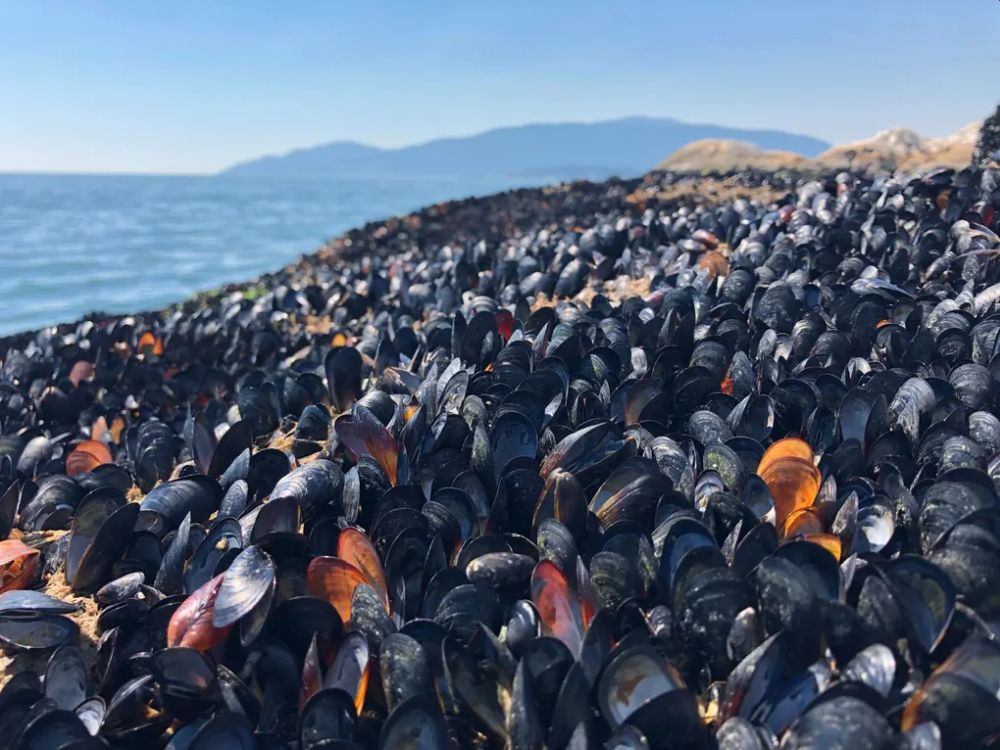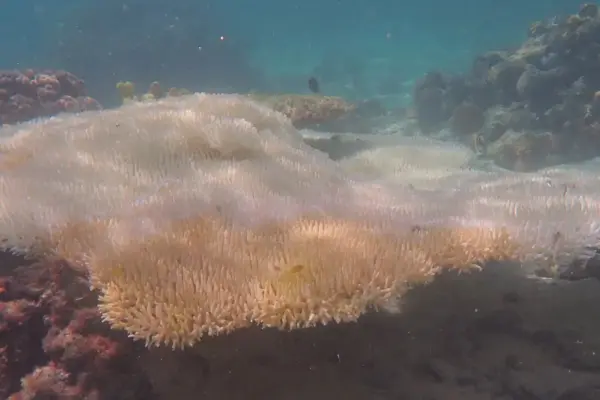Extreme Heat Baked Over a Billion of Marine Animals to Death on Canada Coast
In a mass die-off, many marine animals that live on the beaches of Western Canada, including mussels and clams, were found dead. The devastating heatwave that ravaged British Columbia a few days ago has possibly baked over a billion marine animals to death along the coast of Canada.
Last week, the Pacific Northwest reported record heatwaves wreaking havoc through parts of the United States and Canada. The heatwave caused fires and the melting of roads and cable wires in North America. The same heatwave is being blamed for this massive mortality event.
Christopher Harley, a professor in the zoology department at The University of British Columbia, discovered innumerable dead mussels popped open and rotting in their shells at Kitsilano Beach.
Studying the effects of climate change on various ecosystems, Harley went to the beach to examine the condition of clams, mussels and sea stars, which thrive in rocky shores such as on Kitsilano Beach, amid the record heatwave that hit the region on June 26-28.
To his shock, he found the intertidal invertebrates dead along the shore. Mussels are not quite used to extreme temperatures of the record-breaking heatwave that the region recently experienced.
He said,
I could smell that beach before I got to it, because there was already a lot of dead animals from the previous day, which was not the hottest of three. I started having a look around just on my local beach and thought, ‘Oh, this, this can’t be good.’ It was a catastrophe over there. There’s a really extensive mussel bed that coats the shore and most of those animals had died.
Climate scientists called the heatwave in British Columbia and the Pacific Northwest in the United States “unprecedented” and warned that changing climatic patterns would make such events more frequent and intense.
But this “unprecedented” event shouldn’t come as such a big surprise. Climate experts have been pointing to such catastrophic events since the beginning of the century and urged humanity to mind their actions, to no avail.
Over two dozen scientists at World Weather Attribution analyzed the event and found that the heatwave “would have been virtually impossible without the influence of human-caused climate change.”

Image: Christopher Harley
This incredibly dangerous heatwave has most likely killed as many as a billion mussels and other marine animals in the Salish Sea, which includes the Strait of Georgia, the Puget Sound, and the Strait of Juan de Fuca; although it is merely a preliminary assumption.
According to Brian Helmuth, a marine biology professor at Northeastern University, mussel beds, such as coral reefs, serve as an early warning system indicating the health of the oceans. He further added that the death of the mussel habitat can cause “a cascading effect” on other species.
Scientists are extremely worried as such heatwaves are becoming more frequent, occurring every 10 years instead of every 1,000 years or every five years. This doesn’t give enough time to these species and their habitats to recover and replenish, pushing them toward the verge of extinction.
Via: The Guardian


